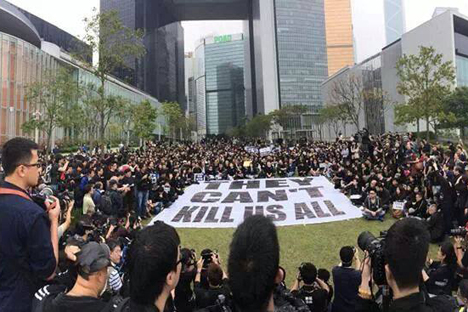Attacks on Hong Kong journalists raise concern
HONG KONG – With two violent attacks on Hong Kong journalists receiving global news coverage, the international community has joined local journalists and media watchers in asking whether media owners and the government are doing enough to protect press freedom.
by Benjamin Li

Please sign in below or access limited articles a month after free, fast registration.
If you don’t yet have an account, you can register for free to unlock additional content. For full access to everything we offer, view our subscription plans.
Sign In
Register for free
✓ Access limited free articles each month
✓ Email bulletins – top industry news and insights delivered straight to your inbox
Subscribe
✓ Unlimited access to all Campaign Asia content
✓ Real-world campaign case studies and career insights
✓ Exclusive reports, industry news, and annual features
